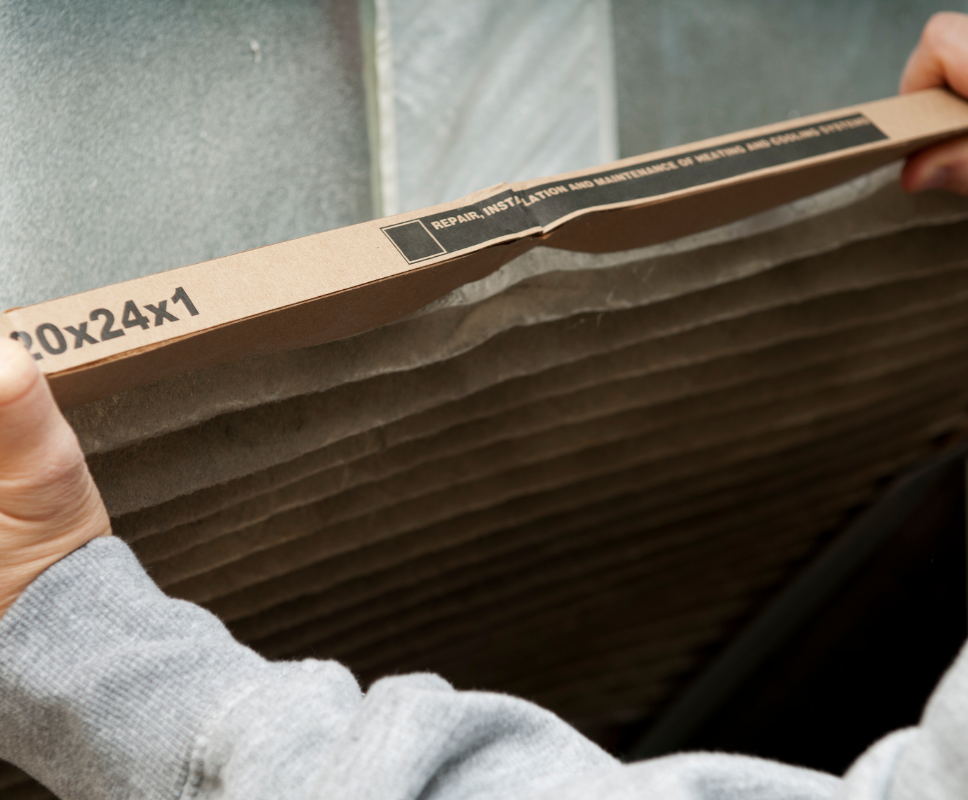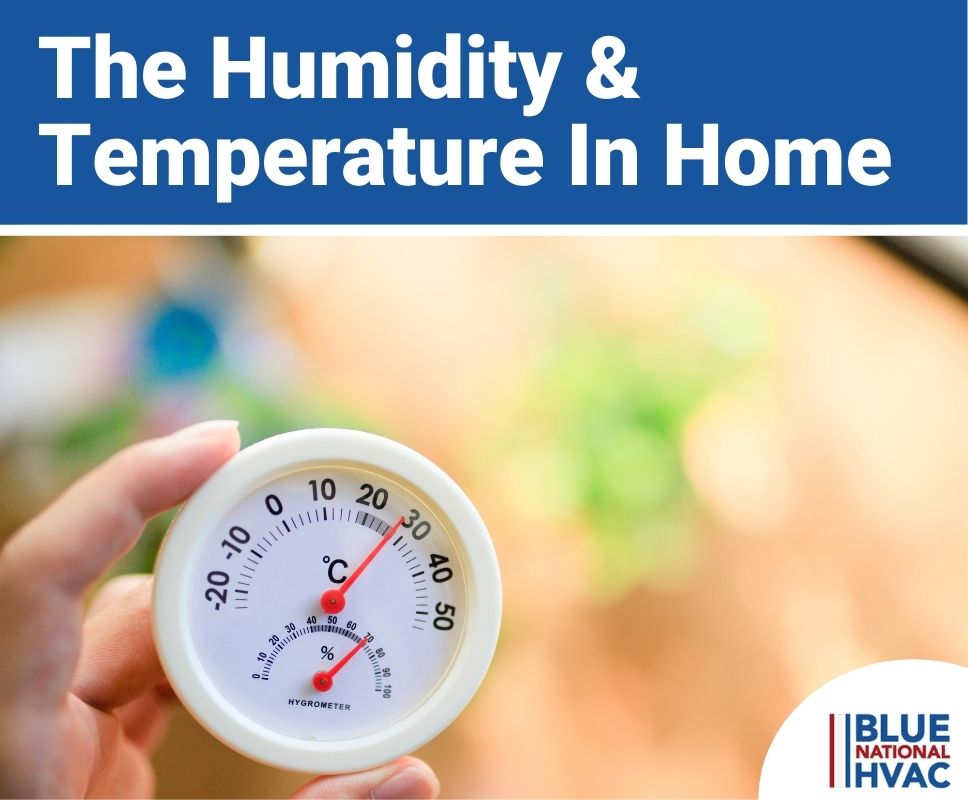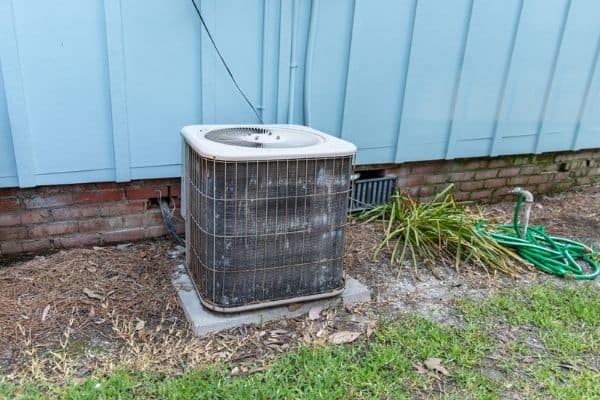Why Your Sleep Environment Is Important
Everyone feels much better after a good night’s sleep, but could you be doing more to facilitate this? The amount of sleep you need depends on a number of factors, but before considering this, it’s worth thinking about whether you’re giving yourself the opportunity to get enough sleep? Do you factor a good night’s sleep into your plans for the day or are you regularly working late or staying up glued to a screen or two?
The modern world is packed full of blue light, which isn’t great for sleep and beyond this, we often prioritize other things over our need to rest and get a proper night’s sleep. External factors can also influence the quality of your sleep, from temperature to noise and air quality to humidity.
The National Sleep Foundation assesses that all adults aged 18 to 65 require between 7 and 9 hours sleep per night, with children requiring more, depending on their age. Not getting enough good quality sleep can have serious consequences, even in the short term.
The Consequences of Lack of Sleep
Even a little less sleep than you’re used to can cause uncomfortable short-term symptoms. Let’s dive into some of those symptoms below.
Memory Issues
Lack of sleep can inhibit your ability to remember and effectively process information.
Lack of Alertness
Even losing just one or two hours of sleep can impact your alertness the next day.
Lethargy and Sleepiness
No one wants to feel lethargic and overly tired throughout the day, but that’s what happens with a lack of sleep.
Mood Swings
Not sleeping enough can cause irritability which in turn can impact your relationships, as you may snap and overreact.
Accident Risk
While not exactly a symptom, being overtired puts you at a much higher risk of making mistakes, whether that’s behind the wheel, at work, or at home.
Not getting enough sleep can become a more serious problem if you continue to try and function over a longer period of time. Long-term and serious health problems can quickly develop if you are consistently unable to get enough sleep. Symptoms of chronic sleep deprivation can include heart failure, heart attack, stroke, and high blood pressure. Other problems include depression, immunity problems, diminished sex drive and obesity.
It is often possible to recognize when someone is sleeping badly or suffering from a long-term lack of sleep, as it begins to affect their appearance. It can be obvious in the form of premature wrinkles and dark circles under the eyes. Lack of sleep can also lead to an increase in cortisol, the body’s stress hormone. Cortisol also breaks down the body’s collagen which keeps skin smooth, leading to unwanted wrinkles.
Creating the perfect environment for sleep is a vital step in improving your sleep quality and ensuring a good night’s sleep every night. Furthermore, the air quality in your bedroom is particularly important for creating that perfect sleep space.
Air Quality and Sleep Quality
The quality of the air in our homes is not something we pay much attention to; we simply breathe it in and think it’ll do, and everything is absolutely fine. However, plenty of research shows how important air quality can be for a good night’s sleep and what issues you should look out for in your home.
Ventilation
Air quality can affect sleep because bedrooms are often subject to some of the poorest air quality in the whole home. This is usually because of the size of the rooms in question and because we often shut our bedroom doors behind us and don’t always keep the windows open. Generally, the bigger the room, the better the air quality, but remembering to leave doors and windows open occasionally can help too.
Humidity
There are many reasons a bedroom may have high humidity levels. It’s often because you choose to dry clothes in the space when you should try to keep them outside. Many homes also have undiscovered damp problems that can impact the humidity in bedrooms, too. High humidity levels will leave you feeling uncomfortably sticky and hot, impacting your sleep as it’s simply impossible to drift off. Bedrooms with high humidity levels can also be hotbeds for mold and dust mites, which pose further problems for sleep as well as your overall health.
Airplane Dryness
On the opposite end of the scale, rooms that are too dry can leave you feeling that dry mouth and nose that you associate more commonly with air travel. For comfort at night, around 50% humidity is best, as it allows you to sleep comfortably without feeling overly sticky or too dry. Your HVAC system can add to the air drying out, so it’s important to consider humidifying options, too, when using your HVAC throughout the warmer months. There are a range of humidifiers on the market, but those that use vaporizers are not recommended and the EPA warns this kind of unit can be dangerous.
Allergens
As you sleep, you breathe much more deeply than you do when just walking around day-to-day. The deep breathing needed in your sleep cycles can easily be disrupted by common allergens such as mold, dust and ragweed. These allergens can exacerbate respiratory disorders such as asthma and can trigger allergic reactions easily, making symptoms such as coughing and sneezing worse. To minimize allergens in the room, you could consider keeping windows closed to avoid allergens from outdoors getting in and consider bedding that is allergen-safe and dust mite resistant.
Indoor Air Pollution
By far the biggest issue impacting your sleep is indoor air pollution. Often considered more dangerous than its outdoor counterpart, tiny invisible pollutants are present all around us whether at home or at work or lying in bed. Many of the actions we take affect the volume of indoor air pollution in our bedrooms. Many regular household products are actually harmful, or toxic breathe including:
- Some scented candles
- Cleaning products, sprays and disinfectants
- Paint
- Printer ink
- Air fresheners
The most common toxic compounds found in air pollution include ether-based glycol which is in many cleaning sprays and nitrogen dioxide which is found in some of the most common air freshener sprays.
Breathing in these pollutants in your sleep is particularly dangerous and can affect the central nervous system and even potentially induce sleep apnea. This condition is particularly dangerous as it leads to moments of not breathing in your sleep and can be extremely dangerous if not treated. Treatment can include the use of a CPAP machine overnight, which can be uncomfortable, too.
The American Thoracic Society looked into the sleep efficiency of participants and found that greater exposure to nitrogen dioxide and particulates known as PM 2.5s were more likely to trigger lower sleep efficiency. Researchers believe this outcome could be due to how the air pollution affects the body.
To minimize the impact of pollution in your bedroom, simply make it a pollutant free zone. Make sure you have proper ventilation in place where possible, and don’t keep any electronics in the room, either.
Opt for chemical free air fresheners such as oil diffusers and create a space that is 100% comfortable, relaxed and doesn’t pose any threat to your respiratory health or sleep quality.

Other Factors Influencing your Sleep
Getting a good night’s sleep is heavily influenced by your environment, but that goes beyond air quality. Let’s look more closely at some other factors that may influence your sleep quality and how you can create the ultimate environment for sleep in your bedroom.
Noise
It’s not a surprise that a quiet bedroom is much more peaceful and conducive to sleep than one where noise is constant and disruptive. Loud noise disturbances can cause fragmented sleep and disrupt your circadian rhythm. Even low levels of noise can shift your sleep to a lower and lighter stage, impacting on the overall quality and efficiency of your sleep. If you live in a noisy area, consider noise canceling headphones. Another option is to pump in your own relaxing or calming background noise for sleep. White noise machines can mask outside noises and create an ideal backdrop for peaceful sleep. Alternatively, you may opt for soothing music or ambient sounds, which can create a stress-free and relaxing sleep environment.
Light
Natural light and darkness strongly influence your sleep patterns. The circadian rhythms that guide natural sleep patterns rely upon natural light and darkness to function. In the daytime, your eyes take in the sunlight and then signal to your brain to produce the hormone cortisol. This plays a key role in keeping you energized and alert. Once the sun sets and it gets darker, your brain produces the hormone melatonin. This hormone is released by the pineal gland and induces feelings of relaxation and drowsiness, just in time for sleep.
Overexposure to artificial light can impact your circadian rhythms, delaying them and confusing your brain resulting in prolonging the sleep onset process. The intensity of light is measured in a unit called lux. Studies have found that exposure to light of 10 lux or higher later in the day can disrupt sleep, increase nocturnal awakenings and result in less slow-wave sleep, the stage of sleeping essential for restoration and cell repair. The key culprits of night-time light overexposure include our cell phones and of course, TVs in the bedroom. To keep your circadian rhythms in check and ensure they’re not impacted by light levels, opt for dimmer lamps in your bedroom, remove the TV and try to put your cell down at least a few hours before bed.
Temperature
The temperature of your bedroom is quite closely linked to the air quality we have already discussed in depth. However, feeling too hot or too cold in the bedroom is never enjoyable and achieving the perfect temperature is important to ensure good quality sleep. All healthy adults actually experience a drop in temperature during the early stages of sleep.
Experts at the Sleep Foundation believe the ideal bedroom temperature for sleep is 65 degrees Fahrenheit. Some may feel this is a bit too cold, but research shows that opting for a cooler bedroom space is ideal for helping you maintain a cooler core temperature, creating ideal conditions for a good night’s sleep. If these settings seem too cold for you, you can add layers of bedding or clothing and still enjoy the temperature recommended for a peaceful night of uninterrupted sleep.
These are just some of the conditions to consider when creating your ultimate sleep environment. Other factors will, of course, depend on personal taste. In terms of color, blue is traditionally considered calming and relaxing and a study by British hospitality brand Travelodge has shown those with blue bedrooms get more sleep than those in other colors. Your personal preferences really do matter, too, and for some, displays of personal mementos and ornaments are important. Others are much happier with a minimalist, clean and fresh space.

Better Sleeping, Better Living
Good quality sleep makes every day seem brighter and more enjoyable. It boosts your productivity and makes it easier to get up in the morning and enjoy the day. Many factors impact the quality of your sleep and tackling each one when redesigning your bedroom will help ensure your space is as amenable as possible to peaceful, all-night sleep.









